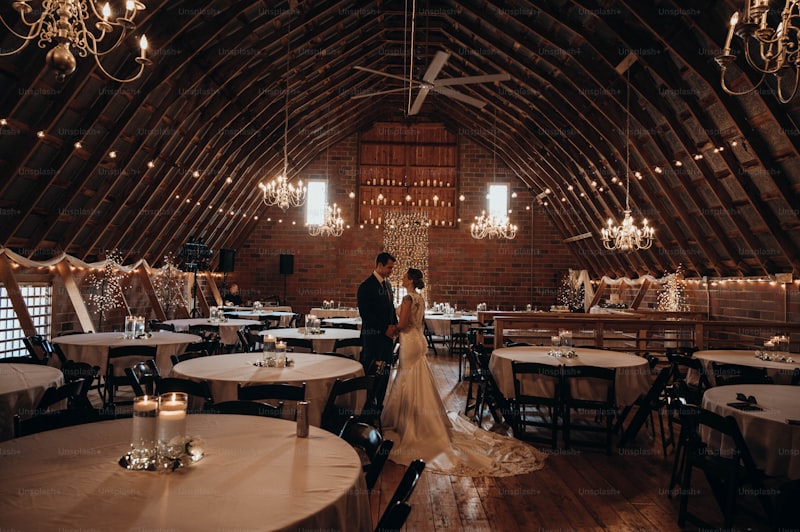Destination Wedding Planning Essentials: Your Ultimate Guide
Introduction to Destination Weddings
Destination weddings have become increasingly popular among couples looking to tie the knot in breathtaking locations. However, planning such an event requires careful consideration and organization to ensure that your special day goes off without a hitch. This guide will cover all the destination wedding planning essentials you need to know, from choosing the perfect location to finalizing the guest list.
What is a Destination Wedding?
A destination wedding is a ceremony that is held in a location away from the couple's home. This can take place in various beautiful settings, such as exotic beaches, historic cities, or majestic mountains. It often combines the wedding ceremony and a vacation experience for both the couple and their guests. According to a survey by The Knot, nearly 25% of couples choose to have a destination wedding, showing its growing popularity.
Choosing the Perfect Location
Choosing a location is one of the most critical aspects of destination wedding planning. Here are some essential factors to consider:
- Accessibility: Make sure the destination is easily accessible for your guests. Consider flights, transportation, and any potential travel restrictions.
- Climate: Research the weather patterns of your chosen location during your intended wedding date. Choosing a season with favorable weather is crucial.
- Budget: Different locations come with different costs. Consider not just the venue but also accommodation, catering, and travel expenses.
- Local Regulations: Understand the legal requirements for getting married in your chosen destination. Each country has its rules regarding marriage licenses.

Guest List Considerations
Creating your guest list for a destination wedding can be challenging. Here’s how to approach it:
| Pros of a Smaller Guest List | Cons of a Smaller Guest List |
| 1. More intimate experience | 1. May upset friends or family not invited |
| 2. Easier logistics | 2. Limited to close relationships |
| 3. Potential for more engagement with guests | 3. Less variety in perspectives and experiences |
It's common for couples to feel torn between inviting everyone they know and maintaining an intimate celebration. Aim for an intimate gathering, as it helps create meaningful connections and enhances the overall experience.
Budgeting for Your Destination Wedding
Planning a destination wedding can be more cost-effective than traditional weddings, but it's essential to set a clear budget. Here are elements to include:
- Venue Costs: This may include rental fees, decoration, and setup costs.
- Travel Expenses: Consider your own travel costs as well as those of your guests.
- Accommodation: Research local hotels or resorts for group discounts.
- Catering and Beverages: Different venues will charge different rates, so it’s wise to compare options.
- Wedding Attire: Factor in costs for your dress, suit, and any alterations necessary.
Hiring the Right Vendors
Using local vendors can be advantageous, as they usually have experience with destination weddings. Here’s a list of essential vendors you should consider:
- Wedding Planner: A local wedding planner can help navigate local customs, manage logistics, and ensure your vision is executed on your big day.
- Photographer: Research photographers who specialize in weddings and have experience in your chosen location.
- Caterer: Choose a catering service that can accommodate dietary restrictions and offers local cuisine options.
- Florist: Capture the beauty of the venue with carefully chosen floral arrangements tailored to the local environment.
The Importance of Legal Requirements
Different countries have their regulations regarding marriage licenses and ceremonies. Ensure that you understand the legal requirements for your destination. Some important tips:
- Contact the local government office for details about obtaining a marriage license.
- Consider hiring a local officiant who can guide you through the process.
Creating a Timeline
Creating a timeline is essential for a smooth planning process. Here’s a basic sample timeline for your destination wedding:
| 12 Months Before | 6 Months Before | 1 Month Before |
| Choose a destination and set a date. | Finalize the guest list and send out invitations. | Confirm all vendor bookings and follow up with guests. |
| Hire a wedding planner if needed. | Arrange travel and accommodation for guests. | Prepare for travel and make a packing list. |
| Book your venue and vendors. | Plan coordinated attire for the wedding party. | Get marriage license if required in the destination. |
Final Touches: Preparing for the Big Day
Once you have the logistics sorted, it’s time to focus on the final touches:
- Welcome Bags: Prepare welcome bags for guests with local snacks, maps, and itineraries.
- Rehearsal Dinner: Plan a dinner to gather everyone together before the big day, allowing you to bond with your loved ones.
- Plan B for Weather: Always have a backup plan in case of inclement weather.
Conclusion: Embrace the Adventure!
Planning a destination wedding can be both challenging and rewarding. By keeping these destination wedding planning essentials in mind, couples can create a magical experience that they—and their guests—will remember for a lifetime. Remember to stay flexible and enjoy the process, as this is the beginning of your wonderful journey together.
Before you finalize your plans, consider the personal touches that represent you as a couple. This will help create an unforgettable atmosphere that resonates with both you and your guests. Happy planning!